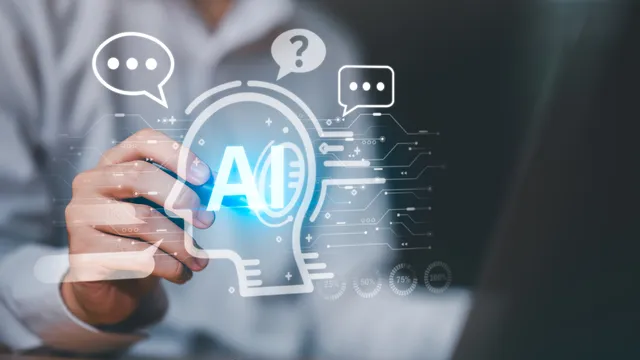AI in Customer Service: How It Can Benefit Your Business

Although artificial intelligence is already present in many aspects of our everyday lives. One of these is customer service, where the use of AI has significantly increased in recent years. Determining whether AI chatbots are the best option for your company can be difficult as more and more businesses use them to handle their customer care needs. Here are some things to consider while making your decision. Let us know how AI in Customer Service can benefit for your business.
In what ways may enhance AI in customer service?
AI can help you to improve customer engagement, boost brand loyalty and boost retention. Although this types of technology is not a substitute for humans it can aid in increasing productivity and takes the low-hanging fruit such as responding to frequently asked questions off the hands of your customer service team.
AI-powered solutions
Understand the various possibilities AI might present to your business.
In order to remove obstacles to communication and expedite client engagements, AI can also integrate other technologies like deep learning, machine learning, and natural language processing. Chatbots, bots, and product suggestions based on consumer behaviour data are the most well-known instances of AI in action. But the options are endless.
AI Facilitates a Better Understanding of the Customer
Businesses can gain a more accurate representation of their clients by using AI and machine learning to collect and analyse historical, social, and behavioural data. Unlike traditional data analytics software, artificial intelligence (AI) is always learning and developing through data analysis and can predict consumer behaviour. This enables brands to provide superior content, expand revenue opportunities, and improve consumer satisfaction.
“There is potential for a broad impact when it comes to the consumer experience. Both B2B and B2C businesses have the chance to use the rapidly growing amount of data in conjunction with AI to improve their consumers’ daily experiences.
Real-Time Decisioning and Predictive Behaviour Analysis
Real-time decisioning refers to the capability to make decisions based on the most current data available, for instance, data from the most recent interactions a client has with a company — which has near-zero latency. Precognitive’s Decision AI, for example, has a sub-200 millisecond response to evaluate every event in real-time, with a blend of AI as well as machine learning.
Real-time decision-making could be used to target customers with marketing more effectively. Finding consumers who are blocking advertisements and providing them with alternate UI elements that might keep them interested is an example of real-time decision-making. Personalised recommendations are another choice that are used to give the user more pertinent information. Businesses are able to provide hyper-personalized, important facts and promotions to their customers in real-time by using AI and real-time decisions to recognise and understand a customer’s intentions from the data they generate.
Also Read: Also Read: Impact of Agentic AI Based Workflows in Future Workplaces
AI Chatbots Come of Age
According to a 2025 MIT Technology Review poll of 1,004 company executives, the most common application of AI at the moment is customer service (via chatbots). According to 54% of consumers in the study AI and the Ethical Conundrum, people often interact with businesses using AI-powered tools like chatbots, virtual assistants, and biometric scanners. Furthermore, compared to just 30% in 2013, 49% of these clients were able to demonstrate the reliability of AI interactions.
AI chatbots can be useful in helping clients on an individual basis, but he does not think they should take the place of human connection.
Notably, in order to provide customers with the most satisfying experience, organisations need to find the ideal balance between human engagement and customer service. AI-powered chatbots, for example, can be a useful tool that might lower expenses for companies and let people handle little problems on their own.
It’s important to keep in mind that trying to understand everything will not improve chatbot performance. Rather, they should be used to handle a particular set of problems, such as order tracking, account management, and billing. Chatbots can assist with billing management-related queries by a factor of two to three, according to studies.
AI for Hyper-Personalization
Customers as well as businesses are utilising conversational AI, because it provides tailored experiences that are more effective and user-friendly than conventional ways of interacting with businesses, like waiting for a call or navigating through a plethora of websites to find the right information. Apart from the advantages of a more tailored connection, AI can help reduce customer journey pain points.
“Having to repeat information they’ve already supplied, such verifying a number or explaining a problem to numerous agents, is a huge source of stress for consumers. Businesses’ relationships with customers become more intimate when they use solutions like their Conversational Cloud, which enables conversations using AI to link to previous conversations, customers’ stated intents, and other information.
Also Read: Best Benefits of Chatbots for Online Customer Service






